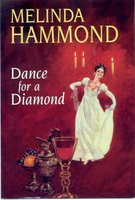When you are alone, how often do you put on the TV for company, or the radio, or a CD? Imagine living in a time before radio and TV, what would you do to break that still, pressing silence that one is sometimes aware of? Today we can listen to all kinds of music but in the past just how did people know about Mozart, or Handel? The only means of communication was by word of mouth or print, you couldn’t email someone and say, ‘Hey, go online and listen to this, it’s that new young sensation Mozart, isn’t he great?’ The rich (if they considered themselves cultured) would invite musicians to perform for them, or go to concerts, but for the great majority music must have come in a home-grown variety – for the poor perhaps singing was their first musical experience, or fiddlers playing at the May Fair. When Mozart and his contemporaries toured the country they must have played with a range of orchestras, from the very good to the downright awful – after all, there were no recordings to set a benchmark. In my latest book Dance for a Diamond, music is very important to the main character, Antonia Venn: she loves dancing, and like most young girls of good family she would have been taught country dances at home or school, and attended local assemblies held in the function room of the local inn. We know that her own governess was very musical, because when Antonia opens her dancing school in Bath, Miss Chittering joins her to play piano for her pupils. However, although Antonia attends the musical concerts held at the Assembly Rooms, her social status has changed, and as a dancing teacher she will not risk going to any of the balls and being snubbed by members of the fashionable world, so her own opportunities to dance are limited. Two gentlemen show an interest in her, but she is pretty sure they are not offering marriage! But I digress…..
We take music very much for granted these days but in Georgian England many people would have had very little chance to enjoy it. So next time you find yourself humming a tune, just think how lucky we are to have such a wide variety of music available at the flick of a switch, to kill that lonely silence.

MELINDA HAMMOND


3 comments:
I remember thinking a while ago how different it would be living in Regency England in terms of the noise. Cities would be noisy, and of course in battle situations but imagine being in the countryside with only the sounds of occasional people and animals, ticking clocks and church bells...
But think of the sounds we have lost - the dawn chorus when there were so many more songbirds, and all the other sounds of nature that have been drowned out by the sound of cars on even fairly distant roads. Because everything was quieter, ears would have been more attuned to the creaking of trees, the scurrying of small animals, and so on.
Although my post says how fortunate we are to have music so readily available, I agree that we have also lost out - it is a rare thing to be able to just sit quietly these days - and us writers need to do that sometimes!!!
Post a Comment